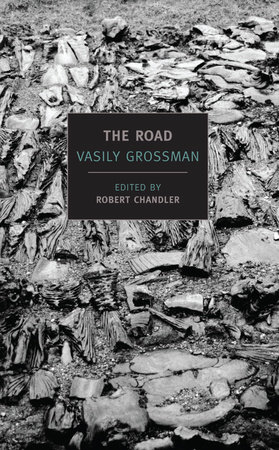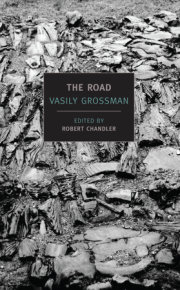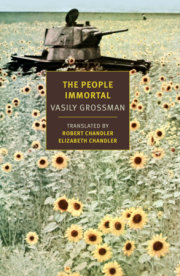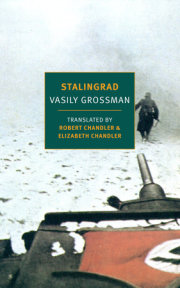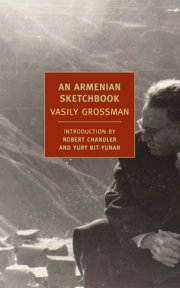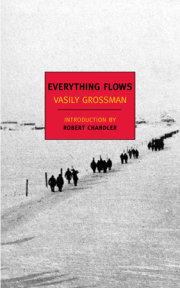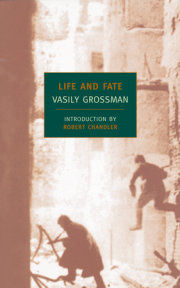Vasily Semyonovich Grossman was born on December 12, 1905, in Berdichev, a Ukrainian town that was home to one of Europe’s largest Jewish communities. In 1934 he published both “In the Town of Berdichev”—a short story that won the admiration of such diverse writers as Isaak Babel, Maksim Gorky, and Boris Pilnyak—and a novel, Glyukauf, about the life of the Donbass miners. During the Second World War, Grossman worked as a war correspondent for the army newspaper Red Star, covering nearly all of the most important battles from the defense of Moscow to the fall of Berlin. His vivid yet sober “The Hell of Treblinka” (late 1944), one of the first articles in any language about a Nazi death camp, was translated and used as testimony in the Nuremberg Trials. His novel For a Just Cause (originally titled Stalingrad) was published in 1952 and then fiercely attacked. A new wave of purges—directed against the Jews—was about to begin; if not for Stalin’s death, in March 1953, Grossman would almost certainly have been arrested. During the next few years Grossman, while enjoying public success, worked on his two masterpieces, neither of which was to be published in Russia until the late 1980s: Life and Fate and Everything Flows. The KGB confiscated the manuscript of Life and Fate in February 1961. Grossman was able, however, to continue working on Everything Flows, a novel even more critical of Soviet society than Life and Fate, until his last days in the hospital. He died on September 14, 1964, on the eve of the twenty-third anniversary of the massacre of the Jews of Berdichev, in which his mother had died.
Robert Chandler has edited and translated numerous Russian titles, including Vasily Grossman’s Life and Fate and Everything Flows. He is the editor of Russian Short Stories from Pushkin to Buida and the author of a biography of Alexander Pushkin. He has co-translated numerous works by Andrey Platonov, including the award-winning Soul, which is published by NYRB Classics. He lives in London.
Elizabeth Chandler is a co-translator of Andrey Platonov’s Soul and Alexander Pushkin’s The Captain’s Daughter.
Olga Mukovnikova is a freelance translator, translation reviser for Amnesty International, and a member of the Chartered Institute of Linguists.

